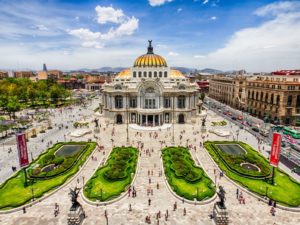It is clear that the political and military security in Europe has eroded, and as the diplomatic efforts to avoid a Russian invasion of Ukraine continues without any substantial progress, the world is on an anxious look-out for strength, stability, and strong-arm tactics; someone to carry the torch with western warmth through the gloomy woods of the old Eastern Bloc. And who else could fill that role better than the current candidate: the ex-investment banker, the wife-poaching, high school teacher-marrying, French president Emmanuel Macron?
In recent days, Macron has taken the lead in diplomatic endeavours, negotiating Russia’s disengagement at the Ukrainian border and being the first head of state to have met Mr Putin in person in Moscow. Macron claimed that Putin gave him personal assurance on Ukraine, vowing not to escalate the crisis. Putin said several proposals put forward by the French president could form a basis for moving forward on the crisis over Ukraine.
Macron has thrust himself to centre stage, emerging as the leading mediator for Europe while also preparing for a re-election bid at home. But where does this power originate from, how has it surfaced and what are Macron’s plans for Europe?
Important to note is that the Presidency of the Council of the European Union is currently held by France, making them responsible for the functioning of the Council of the European Union and the co-legislators of the EU legislature alongside the European Parliament.
Its function is to chair meetings in the council, determine its agendas, set a work program, and facilitate dialogue both at Council meetings and with other EU institutions. As Macron is currently helming this rotating presidency, it is natural for him to take the lead in diplomatic negotiations. However, it is not the only reason for his increasing command.
There is a power void in Europe. The authority of France’s oldest rival, the United Kingdom, within the European Union in the wake of Brexit is growing ever dimmer. Weighing leaders against each other, rather than the states, Macron has the upper hand in gravitas and credibility, especially in light of the recent scandal involving UK leader Boris Johnson, party gate.
More importantly, however, is the stepping down of the German chancellor Angela Merkel, who in her 16-year reign became known as the in effect leader of the Europan Union and possibly the most powerful woman in the world. Unlike his predecessor, the new German Chancellor Olaf Scholz is facing critique over his caution in the conflict, and though he is scheduled to meet with Putin on February 15th, the Wall Street Journal and the New York Times offers headlines such as “Germany, Nato’s weakest link”, and “The ‘invisible’ chancellor heads to Washington amid fierce criticism”.
It is safe to assume that Macron is girding his loins for the opportunity to establish himself as the new Merkel, conveying that message to the world and particularly his own country, as he is eligible for re-election to a second five-year term. Macron has previously rubbed Putin the right way. In 2017 he hosted a grand reception in Versailles, two years later a tête-à-tête on Fort de Brégançon, the French President’s official summer residence on the Riviera. Macron has also called NATO a brain-dead alliance and persistently encouraged to scrap EU sanctions against Russia.
It would be a strategic way for Macron to secure a majority vote at home, advertising himself as the lone leader to sweet-talk Putin and put the conflict to rest, rendering the prospect of electing a new leader too risky and problematic.
What does this mean for the future of Europe, looking beyond the Russia-Ukraine conflict? Macron has an imperial view of France’s place in the world, channelling that view through a strong, united European Union with himself at the helm. In a 2020 speech, addressing the École de Guerre (College of Warfare) in Paris, he presented an expansive vision for a “global France” with Napoleonic undertones.
He aimed for “true French sovereignty”, continuing by suggesting that the country’s defence and foreign policies must “enable us to master our destiny”. Yet this objective was “absolutely not incompatible with our desire to develop European capabilities”, he said.
“Every time we are faced with historic challenges, our reaction must be the same: renewed ambition and audacity … Overhauling the world order to further peace is the course we must follow, and France and Europe have a historic role to play.” There is a certain danger to his cynical pragmatism. Later that year, he hosted Abdel Fatah al-Sisi, Egypt’s despot, prioritizing trade and defence ties over human rights, and in the Sahel region, he mollycoddles dictators.
The French President’s quest for European sovereignty, with a strong France to spearhead the post-Merkel era, will be an interesting development, granted he blows his opponents out the water in the coming election. Despite Macron’s questionable ideals and imperialistic view of France and its world influence, an aggressive and united European front is perhaps a befitting outcome if we are to restore stability in the East and launch ourselves out of the iron grip of the pandemic.








a beautifully written piece. Very able writer. Thank you